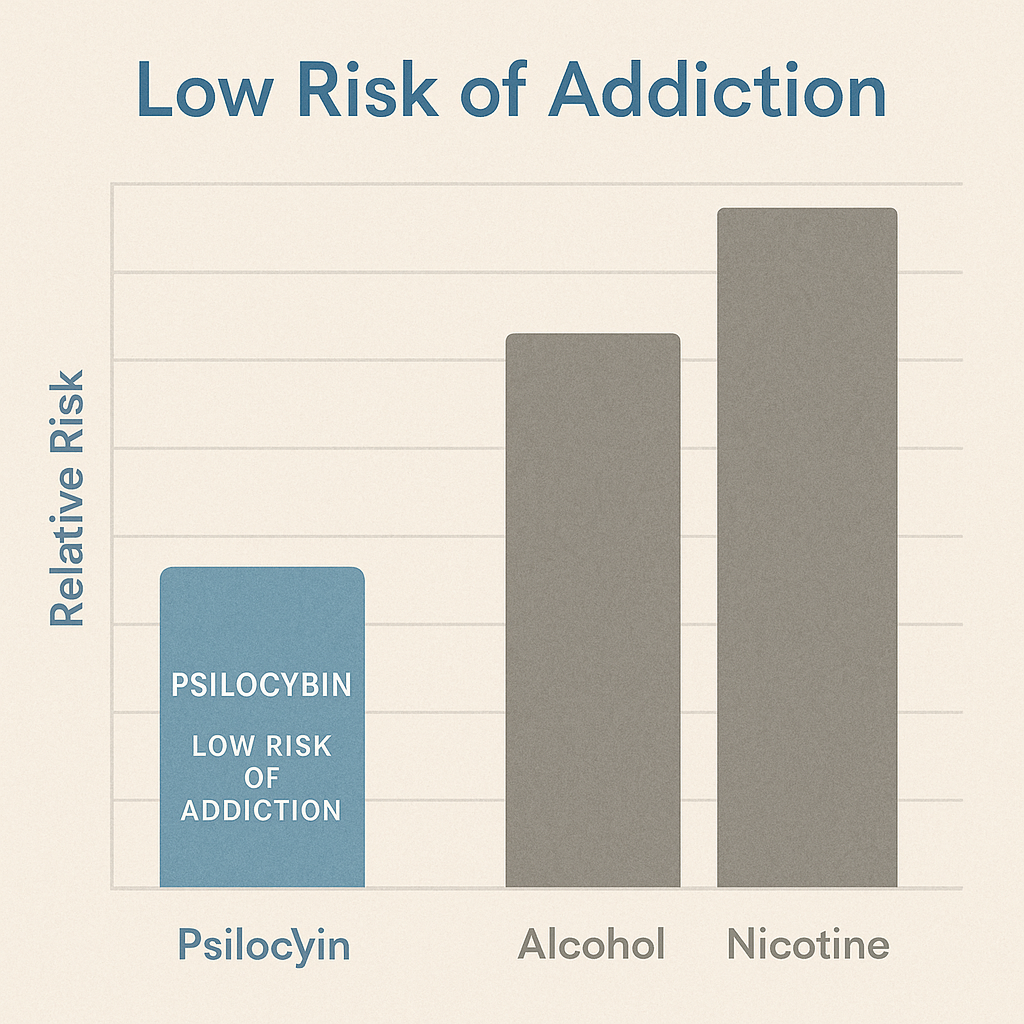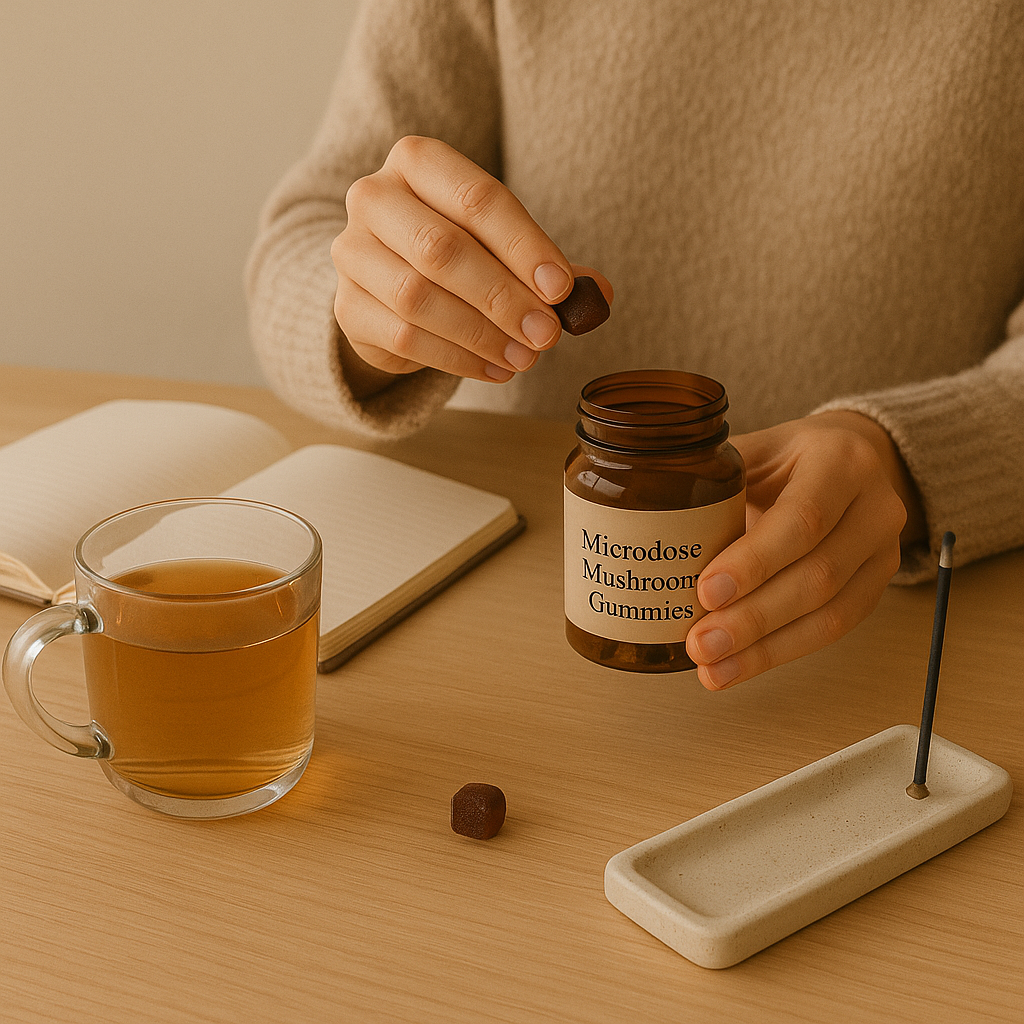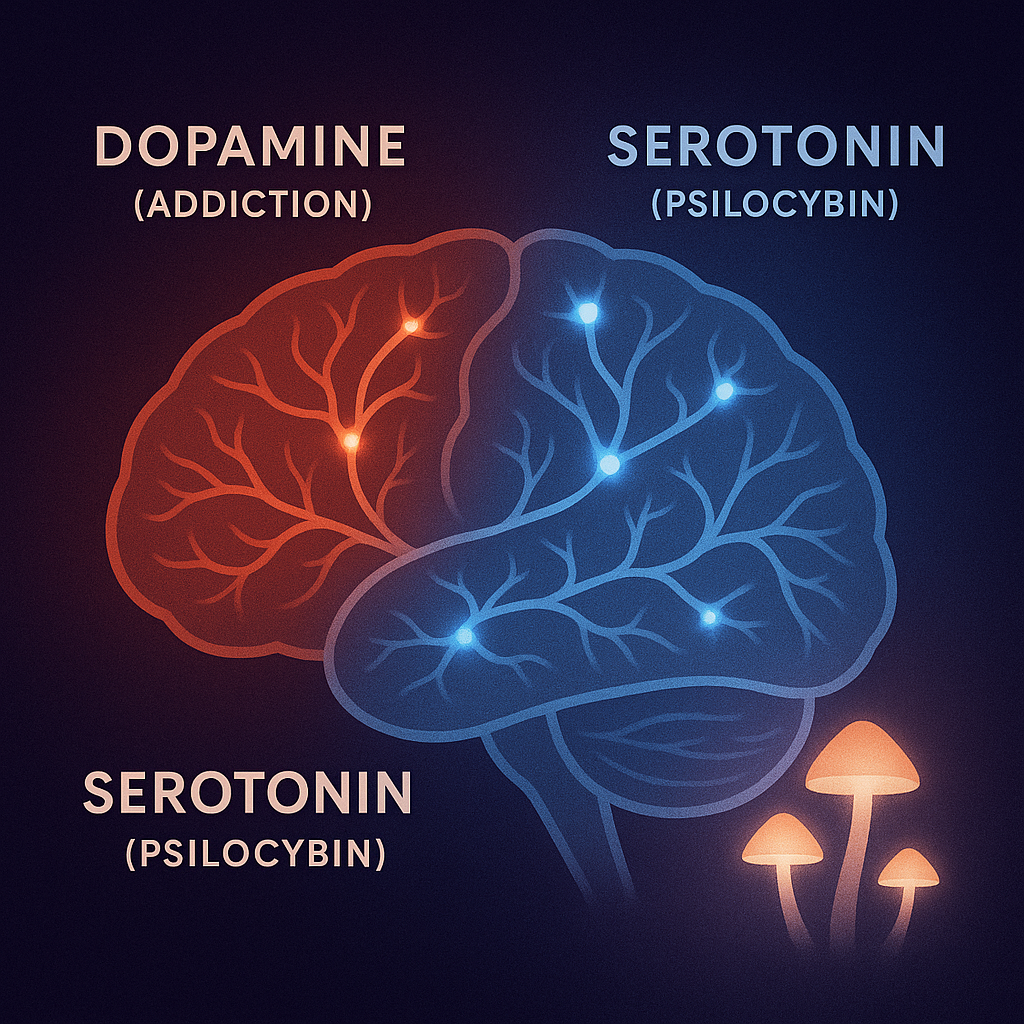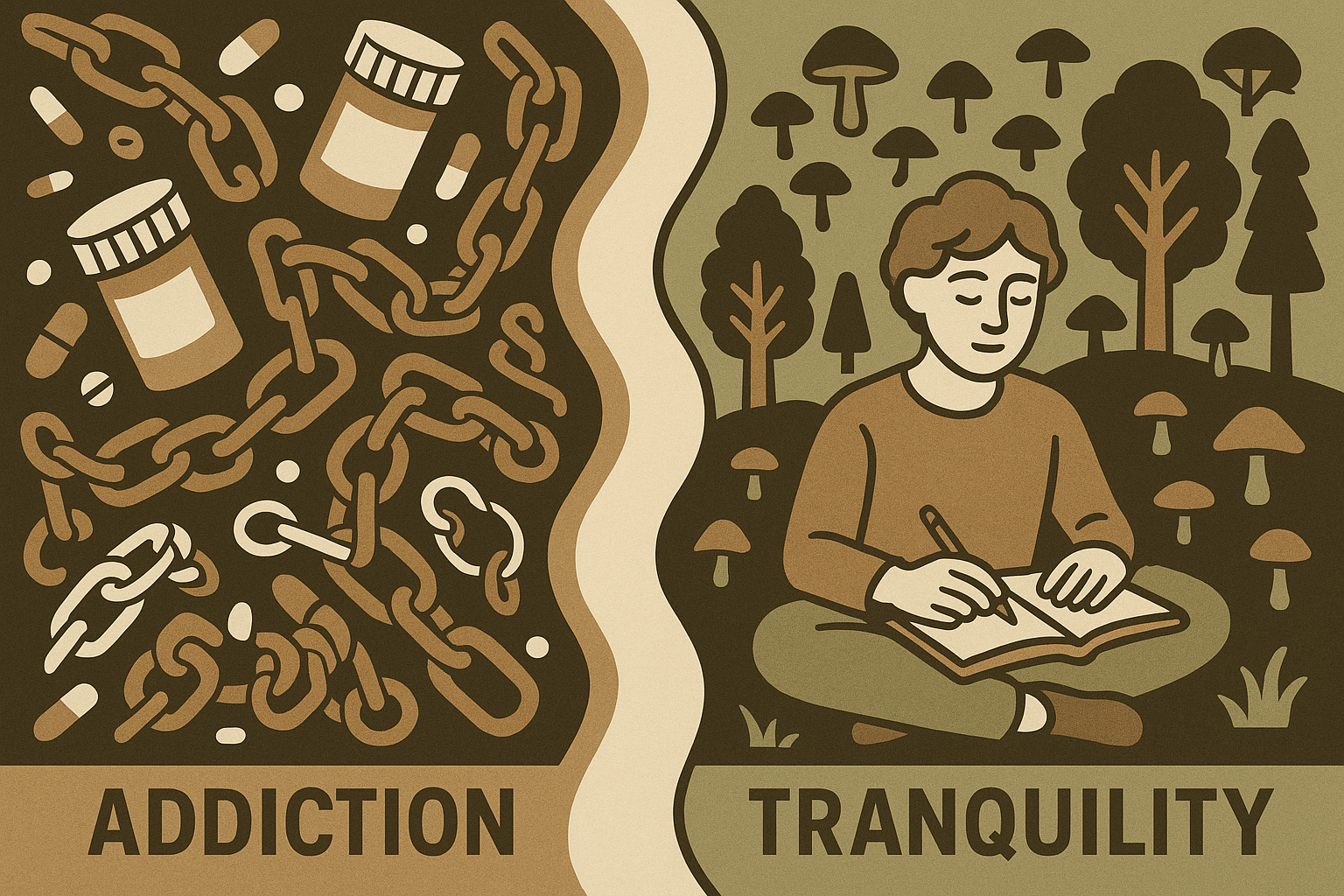The Short Answer: No, But Use Still Matters
Many people ask: Are psilocybin mushrooms addictive? The answer is no, at least not in the way substances like alcohol, opioids, or nicotine are. According to leading research, psilocybin does not cause physical dependence or withdrawal symptoms.
In fact, a 2006 study published in Psychopharmacology found that psilocybin carries a very low potential for abuse, especially when compared to commonly misused substances like alcohol or cocaine (source).
That said, any substance—even non-addictive ones—can be misused if taken without intention, boundaries, or awareness.

What Makes a Substance Addictive?
Addictive drugs typically:
- Trigger dopamine release in the brain’s reward system
- Cause cravings or compulsive use
- Create physical dependence over time
- Lead to withdrawal symptoms if stopped abruptly
Psilocybin does not act on the dopamine system the way addictive substances do. Instead, it primarily affects serotonin receptors (5-HT2A), creating shifts in perception, mood, and thought—not short-term euphoria or physical highs.
Because of this, psilocybin doesn’t produce cravings or compulsive use patterns. In fact, it tends to reduce addictive behavior in many cases.
Can You Get “Hooked” on Psychedelics?
While psilocybin isn’t chemically addictive, psychological patterns can form if it’s used as a way to escape, avoid, or bypass emotional work. This is why harm reduction experts emphasize set, setting, and integration—so mushrooms are used with intention, not as a coping mechanism.
According to the Multidisciplinary Association for Psychedelic Studies (MAPS), responsible psychedelic use involves:
- Setting intentions
- Creating safe environments
- Taking long breaks between higher doses
- Processing the experience afterward

What About Microdosing Habits?
Microdosing with psilocybin is sub-perceptual and generally non-habit-forming, but it’s still worth using with awareness. While many users follow a “1 day on, 2 days off” schedule, some may overuse if they begin relying on it for productivity, emotional regulation, or avoidance.
Best practices include:
- Taking regular breaks (a “reset week” every month)
- Journaling how you feel with and without microdoses
- Consulting trusted guides, therapists, or integration coaches
- Using only clearly dosed, professionally prepared products
Products like psilocybin gummies or mushroom honey make dosage tracking easier, which reduces the risk of accidental overuse.
What Do the Studies Say?
- A 2017 Global Drug Survey listed magic mushrooms as the safest recreational drug, with the fewest emergency medical visits per use
- A Johns Hopkins study in Journal of Psychopharmacology showed that psilocybin, when paired with therapy, helped treat nicotine addiction with 80% success rates at 6-month follow-up (source)
These results suggest that not only is psilocybin non-addictive—it may also help people break free from other addictions when used in therapeutic settings.
What Do Customers Say?
“I microdose for clarity and intention. I’ve never felt like I ‘needed’ it. It’s a tool, not a crutch.”
— Olivia P., Verified Buyer
“I used to smoke every day. After one journey with a full dose and journaling, I quit within a week.”
— T.R., Customer Review
Why Buy from Mycological.co?
- Products clearly labeled and low-dose friendly
- Great for mindful microdosing or occasional use
- Zero additives or stimulants
- Trusted by thousands for balanced, intentional experiences
- Shipping fast and discreet throughout the U.S.
Shop psilocybin products for responsible use →
Explore More From Our Network
- 🌱 Cannabis seeds? Visit NeptuneSeedBank.com
- 🌿 Rooted clones? Head over to KingKongClones.com
- 📦 THCa flower and concentrates? Check PackTrapper.com
- 💨 Bulk psychedelics or THCa? Browse Trapgods.io

Final Thoughts
So, are psilocybin mushrooms addictive? The science says no—but use still matters. Intention, moderation, and integration are key. Whether you’re microdosing for wellness or taking a deeper journey, psilocybin works best when approached with care.
Subscribe to our newsletter for mindful use guides, research updates, and exclusive product releases.
Explore beginner-safe products now →
FAQ
Are mushrooms chemically addictive?
No. Psilocybin does not activate the brain’s reward system like addictive drugs.
Can I build a tolerance?
Yes. Psilocybin tolerance builds quickly but also resets within a few days.
Is microdosing habit-forming?
Not usually, but awareness is still important. Take breaks and track your experience.
Can mushrooms help with addiction?
Clinical studies suggest psilocybin may help treat nicotine and alcohol dependence when combined with therapy.
How do I use mushrooms responsibly?
Start low, dose intentionally, use in a safe space, and integrate what you learn.

